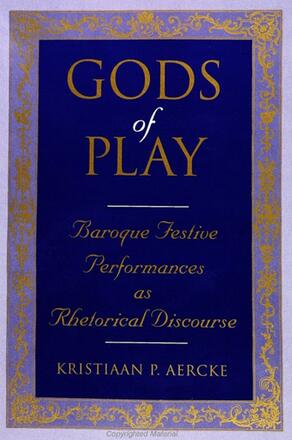
Gods of Play
Baroque Festive Performances as Rhetorical Discourse
Alternative formats available from:
Description
This book studies the close connections between politics, culture, art, and philosophy in seventeenth-century Europe. As an emblem of this interrelationship, the author has chosen the phenomenon of the "splendid festive performance" of spectacular plays and operas given at absolutist courts in Rome, Madrid, Paris, Versailles, and Vienna between 1631 and 1668.
Gods of Play fills voids in the scholarly literature on the seventeenth-century, on absolutism, on courtly theatricality, and on the philosophy of play. Aercke demonstrates that such splendid performances were not just frivolous entertainment for the courtly class but were serious activities with far-ranging political consequences.
Kristiaan P. Aercke is Assistant Professor in the Department of Comparative Literature at the University of Wisconsin, Madison.
Reviews
"While most scholars who have worked on the relationship of art and power in the Renaissance and Baroque ages have limited their focus to one national tradition, or at best to England, France, and Italy, Aercke brings the baroque spectacle performance to life as a truly pan-European phenomenon, as interesting for its common characteristics as for its particular formulation in particular courtly settings. The depth and breadth of his research are most impressive, and the accuracy of his understanding of the cultural politics of these performances is indisputable." — Margaret R. Greer, Princeton University